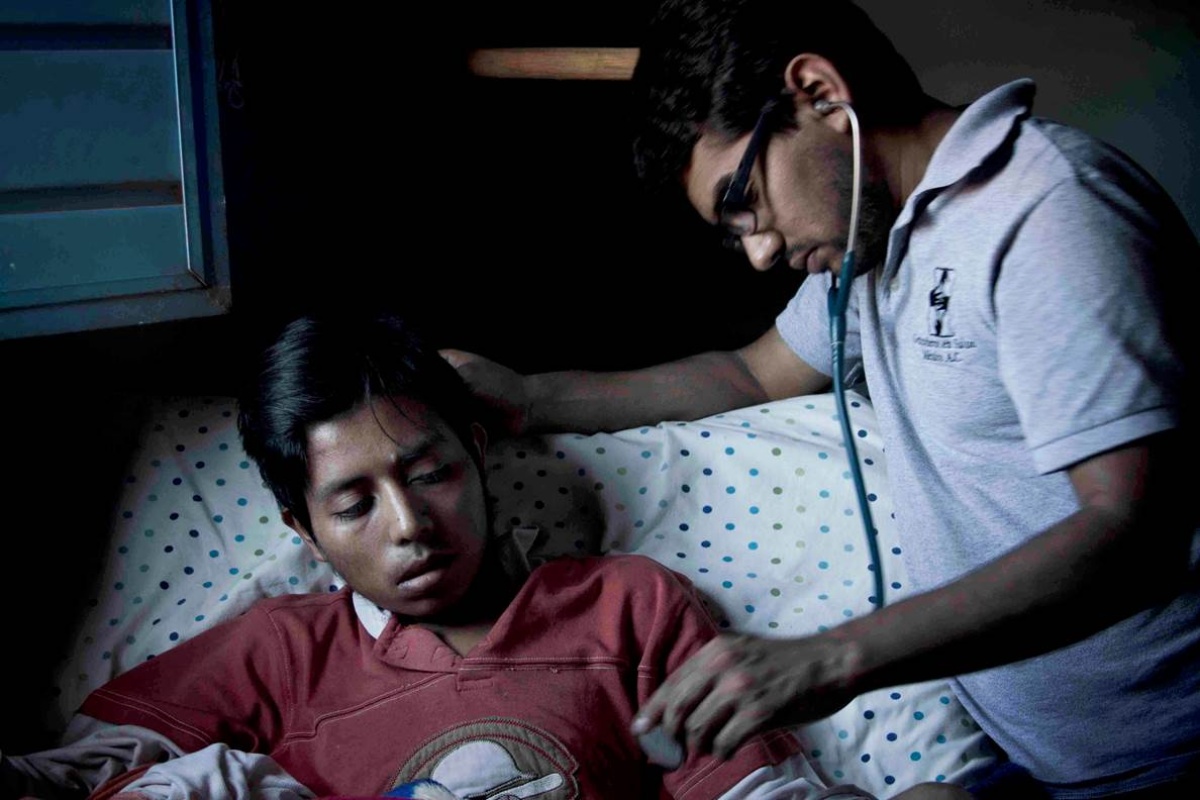PIH Mexico at Two Years: A Doctor Reflects
Posted on Feb 11, 2014

Compañeros En Salud, our sister organization in Mexico, marks its second anniversary this month. To mark the occasion, country director Dr. Hugo Flores Navarro reflects on progress and challenges of working in rural Chiapas.
The story of the founding of Partners In Health in Mexico begins for me while I was doing my social service year in Monterrey, Mexico. All new doctors are required to work one year in a public clinic, and as I was finishing my year, I felt a spiritual motivation to serve patients in marginalized areas. I didn’t know the term “global health” then or what organizations might be engaged in it.
Within a month I found myself in Chiapas with my tent, toys for the kids, and all the typical paraphernalia of a well-intentioned medical tourist.
The last week of my stay in Monterrey, I learned there was a vacancy in a project in Chiapas with PIH and a local community group that trained health promoters, called El Equipo de Apoyo en Salud y Educación Comunitaria. I’d never heard those names before, but Chiapas sounded interesting. I knew it was a big state, the poorest in Mexico, with inadequate infrastructure and lots of communities in very remote areas. I applied for the position, and within a month I found myself in Chiapas with my tent, toys for the kids, and all the typical paraphernalia of a well-intentioned medical tourist.
Working with EAPSEC, a well-respected community group, left me with a deep knowledge of the region where we work now, the Sierra of Chiapas. I learned how to enter a community, how to gain the trust of the people, and how to work in solidarity with our patients. I thought we could do more than medical missions that visited a community for a couple of days every two months.
There were unused clinics in several communities, and I knew in my mind that we could revitalize them and provide better, more comprehensive, and more constant services to the people. These clinics had one or two nurses who vaccinated children and provided family planning and nutrition services, but without doctors or medicines, they had little or no care for sick patients. Residents of these communities had to travel hours to nearby towns and cities to see a doctor, and many spent their entire monthly incomes to receive care.
We had the connection with the Mexican Ministry of Health, with the country’s premier medical school at the Tecnológico de Monterrey, and the expertise of PIH. We got the approval from PIH Boston to create a Mexican sister organization, Compañeros En Salud, and started to plan how we would revitalize our first clinic. Instead of just one, we ended up starting by supporting two clinics and moved to six clinics in six months—a rapid expansion for such a new project.
I think PIH/CES is acting as a vehicle to spread the message and the mission of universal access to health care.
Two years later, I think our biggest accomplishment has been the tens of thousands of patients we have treated from so many communities. Many of them come from communities that are several hours away by foot or vehicle, and some even come from towns that have hospitals and doctors of every kind, but they can’t afford those services or aren’t happy with the quality of care. People who have a health complaint even look for us at our offices. The demand is a little bit too much, but it reflects the quality of services our team provides.
Another accomplishment is that we have inspired an increasing interest in global health among students, residents, doctors, and volunteers of all kinds. Now, I understand what we do to be global health equity, the movement to provide the same, high-quality medical care to all people, not just those who can pay for it out of pocket. I think PIH/CES is acting as a vehicle to spread the message and the mission of universal access to health care.
One of the biggest challenges we have faced, which is common in global health projects, is the high turnover of staff. For most people, working for the poor in rural areas represents a departure from common career and life paths, and it’s still difficult for people to overcome that pressure. Another challenge is our financial dependence on donations. Until governments recognize the value of health system strengthening and invest more money directly in providing universal health coverage to their people, institutions like us will always face the uncertainty of fluctuations in the philanthropic world. In other words, our work will be more secure when global health is no longer a charitable hobby, but rather the essential exercise of realizing health as a human right.
Our work will be more secure when global health is no longer a charitable hobby, but rather the essential exercise of realizing health as a human right.
In the future, I hope more institutions, both governmental and nongovernmental, adopt the goal of reaching the poorest and most marginalized people. I also hope more organizations adopt the idea of a public-private partnership, in which nonprofits such as PIH/CES support the public sector to fulfill its role. I would like to see that schools of medicine include global health in their curricula, and that more people understand that health is a human right that must be available to all people regardless of their ability to pay. I think PIH/CES is a pioneer in global health in Mexico and Latin America, and by working through partnerships, we can be a major player in this revolution.

